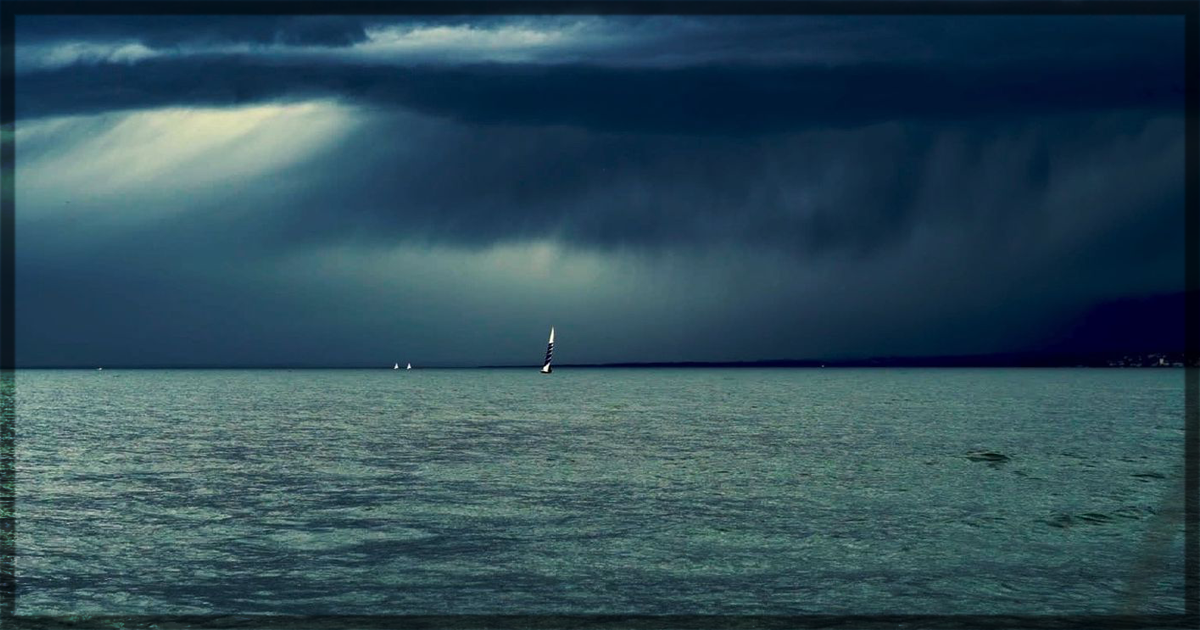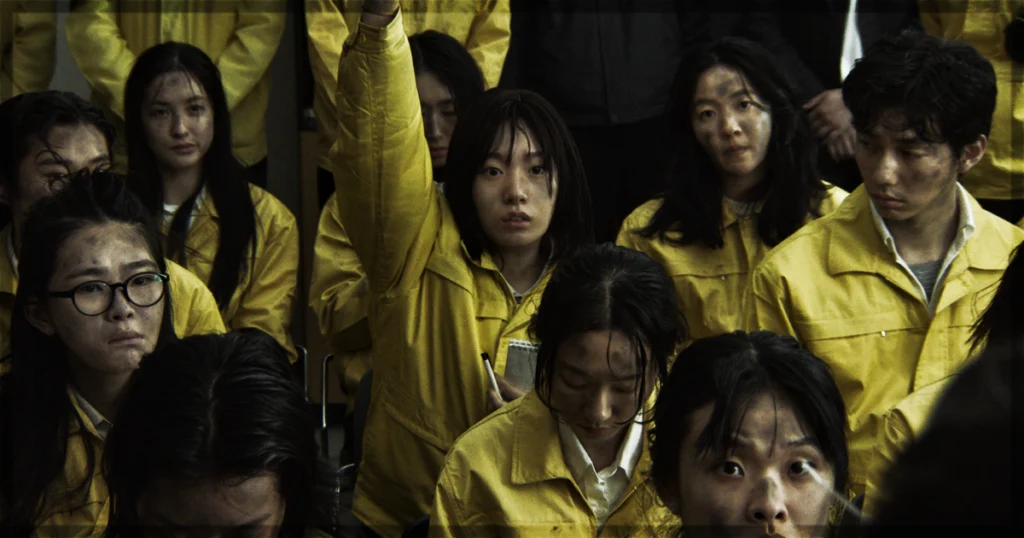The Swiss director Fabrice Aragno is known for his collaborations with the cinematic genius Jean-Luc Godard. He worked as a cinematographer in Godard’s films ” Film Socialisme, Goodbye to Language, and Trailer of a Film That Will Never Exist: Phony Wars. He produced Godard’s last Cannes competition entry, The Book of Image, and co-directed Exposé du film Annonce du film “Scénario”, Godard’s final film. In this sense, his last two decades as a film professional are closely tied to the French vanguardist work, even after his death, as Aragno is the curator for the Japanese exposition “Á Propos du Livre d’Image,” based on Godard’s work. Hence, as he takes care of his master’s legacy, Aragno has finally released his debut feature film, Le Lac. The feature is a longer development of the director’s 2019 short film, Lakesuite Suite, an experimentation on a couple’s boating in Lake Geneva.
As the Swiss director mentioned in interviews in the past years, his directorial debut is a non-conventional work. He pitched based on his idea of portraying the boating experience, focusing on creating a sensorial experience through the imagery. In this sense, the director abandons a traditional narrative scheme. There is no conventional narrative structure, based on the Greek dramaturgy of acts. The Lake, as translated from the French title, introduces a couple, Vincent (Bernard Stamm) and Anna (Clotilde Courau). They are battling grief, a fact never directly stated to the viewer. Therefore, they enter a boating race in Lake Geneva, and the film shifts from their experiences sailing to the memories of a past life, pivoting from the lake to the ground. Consequently, the couple experiences the water’s modulation reminiscent of their emotional transformation as they go through the grieving phases.
Furthermore, the director uses the imagetic as his narrative structure; Aragno operates the frames as writers design their dialogue lines to compose a story. This characteristic derives from the directing choice of abandoning the script before the shoot; Aragno had a story outline, and the on-site filming would determine the final result. Nonetheless, it creates an impromptu dramatization opportunity for the crew, once the film focuses on the events in the water. Thus, the film focuses on the act of sailing, observing the water, and watching a toddler play with their dad on the shore of the lake. In this sense, the small acts are the crucial actions to move the film’s story forward. Each moment means a step closer to understanding absence; hence, swimming in the lake becomes a symbol for the rationalization of loss. In a similar sense, raising the boat’s sail is a symbolic analogy towards the comprehension that the loved one is not returning, and life must continue.
In a deeper context, we could draw a comparison to Aragno’s grief, the loss of his master, even if it was a planned death – Godard chose assisted suicide as the final statement of his life. Le Lac is an effort that releases after this loss, thematically linking to it, but choosing to register its meanings. The film is not as experimental as Godard’s final works, nor is it a study on cinema as a canvas that provides its significance. Aragno aims for reflection, as he constantly films the water in its reactionary state; the water reacts to the winds and its external environment. The director wants the poetry, the raw emotional reaction to the natural stimulus.
Therefore, the film does not present a specific, apparent, and straightforward narrative thread; Le Lac becomes a constant framing for the boat, precisely like the painting on the canvas. In this sense, its contemplative state may challenge the audience to settle down, focus, and observe the imagery. Aragno abandons the use of a music score to concentrate on the images on the screen, using dialogue occasionally to provide information on the characters. Yet, the information yells through the blocking and design of each framing, emphasizing it in a scene where the couple grieves solely through the room’s walls. It is a solid example of how the director utilizes the image to tell this story.
In his debut feature, Fabrice Aragno aims to develop his filmography after two decades of collaborations with cinema’s most influential film director ever. In his first effort, the Swiss director rejects the traditional narrative to explore the imagery present in the water movement, an allegory to grief, and absence in one’s life. It is a challenging watch due to its lack of conventional structure; yet, it is a fascinating work to begin his career as a feature director.
Le Lac recently played at the Locarno Film Festival.
Learn more about the film at the Locarno site for the title.
You might also like…
‘The Fin’ Review: Syeyoung Park’s Latest Film (Locarno)


